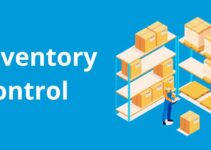Retail logistics comprises managing the movement of goods and products from the supply sources to the customers. Many retail bands deal with a vast variety of goods and products and they require you to develop a systematic action plan for the flow of goods and safely deliver them to the customers. Today, we’ll discuss retail and logistics management; its key elements, advantages, and disadvantages.
What is Retail and Logistics Management?
Retail and logistics management plays a significant role in delivering products from the manufacturers to the end consumers. It is especially true for those businesses and companies that sell their products and goods directly to the customers. However, the growth and success of RLM is possible through various phases involved in the retail logistics system. Some of the phases are as follows;
- Managing inventory
- Shipping and order fulfillment
- Return management
Various phases of RLM could be demanding for those businesses and companies that have the obligation of managing various areas of them. For instance, outsourcing logistics to logistics companies that have got expertise in logistics is a great option for merchants. It would help them to save a lot of time and resources.
Elements of Retail and Logistics Management
Some of the main elements of retail and logistics management are as follows;
Procuring Inventory
It is nearly impossible to analyze the flow of goods and products without involving inventory to complete orders. Purchasing inventory allows businesses and companies to avoid delays of goods when needed. However, sourcing merchandise helps you to meet the demands and wishes of customers in a timely fashion through procurement and purchasing.
Businesses and companies should streamline their retail logistical processes and inventory management; it helps you to avoid delays and disappointing customers. An effective purchasing process is the initial step in the retailing business.
Processing & Receiving Inventory
Successful purchasing leads to optimum functioning of retail logistical phases; processing and receiving of business products. Inventory comprises storing, documenting, and receiving. However, they need to analyze customer standards, match specifications, and be authentic. You should give priority to precision and detailing; omissions and errors would cost you a lot of money.
Distributing Inventory
Businesses and companies allocate their inventory and resources across various distribution and warehousing points. Allocation of inventory makes it easier for the company to distribute products and goods to the customers. However, the goal and objective is to decrease shipping costs and delivery time. Your logistical partners would save you time and cost by giving your access to various warehouses.
Order Fulfillment
After receiving the order, you should start the process to make sure that the goods are ready for shipment and delivery. It is significant to send the order confirmation email to the customers, it would let them about the things they have ordered. Here, you confirm the payment method and complete the transaction, and send the notification to the picker for the delivery package.
Tracking Your Inventory
Tracking and inventory management are significant for your logistical business processes and operations. It allows companies to track their changing inventory and the one that would replenish. You can track and monitor orders to update and notify customers about their shipment
Shipping Orders
In order to quickly ship the goods to the customers, you should send inventory to the distribution centers and points. It plays a significant role in various areas of the logistical processes. Damage, wrong location, loss, delays, and other things could happen to the shipment.
Return Management
Return goods and products is the key area of the retail logistical process. Businesses and companies that don’t have a friendly return policy, lose customers and money. If you have got a return policy in your logistical process, then it allows you to earn the trust and confidence of customers.
Advantage of RLM
Some of the main benefits and advantages of RLM are as follows;
Saving Transportation Cost
Logistical operations help businesses and companies in the retail industry to save capital resources. Working alongside logistical service providers, they could receive discounts and achieve economies of scale on transportation and other services.
Inventory Management
Inventory management is the other main benefit of RLM. Logistical service providers have got the latest technology and equipment that help companies to track their inventory. They have got the stock of products and goods that customers want.
Innovative Technology
The focus of logistical service providers is to upgrade their technology. It helps businesses and companies to gain a competitive edge and offer their customers the best quality experience.
Timely Delivery to Retailers
Logistical operations in the retailing industry help businesses and companies to deliver products and goods to customers quickly and easily. Customers prefer to receive their orders quickly and easily without any delays in today’s fast-evolving world of the internet and technology.
Streamlining SC Processes
The other benefit of logistical processes is to streamline their SC processes. The focus of businesses and companies in the retail industry is to streamline their processes and make efficient choices and decisions.
Disadvantages of RLM
Some of the main challenges and disadvantages of RLM are as follows;
- Increased transportation cost
- Limited focus on customers
- Poor inventory management
- Return management
- Fragmented communication
- Limited tech integration
- Inefficient transportation management
- Limited visibility in the SC processes
Conclusion: Retail and Logistics Management
After an in-depth study of retail and logistics management; we have realized logistics in the retailing industry is highly significant and play a key role. If you are learning about logistical management in the retail industry, then you should keep in mind the abovementioned elements, advantages, and disadvantages.
References
Ahsan is an accomplished researcher and has a deep insight in worldly life affairs. He goes Live 3 days a week on various social media platforms. Other than research writing, he’s a very interesting person.


